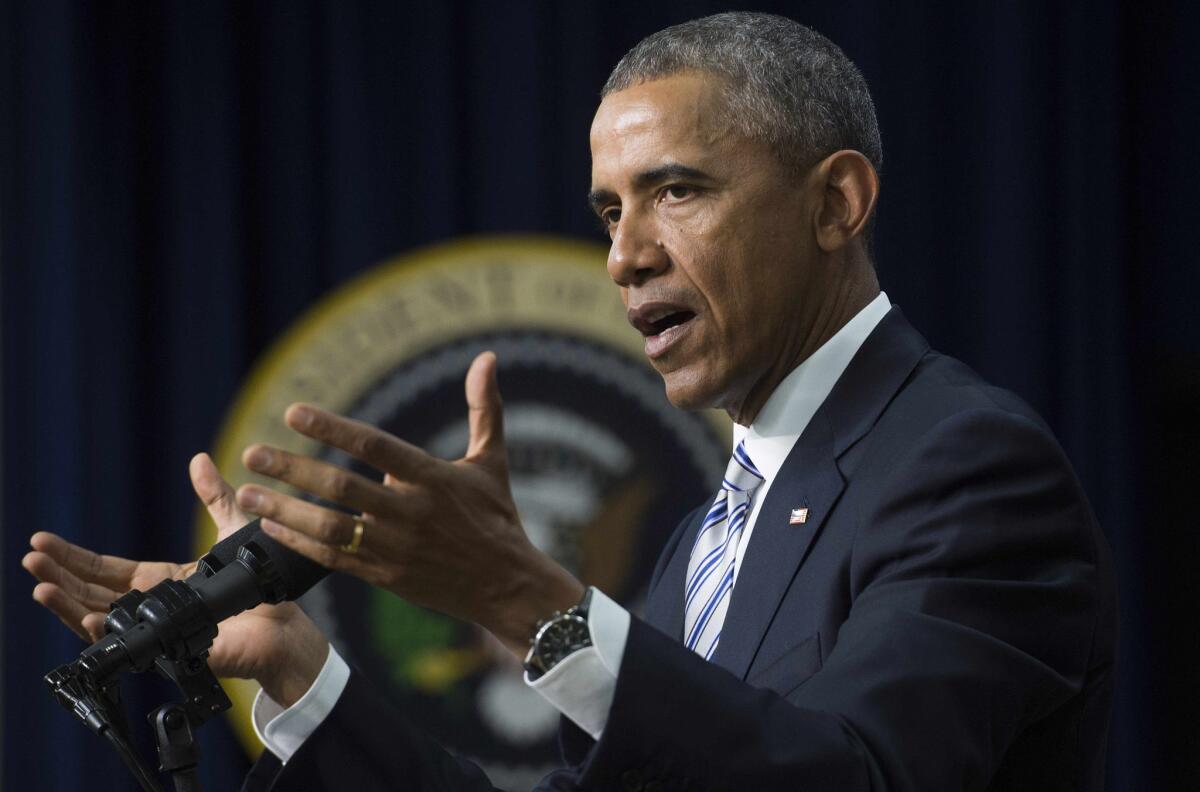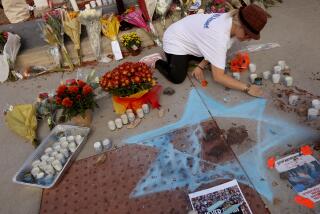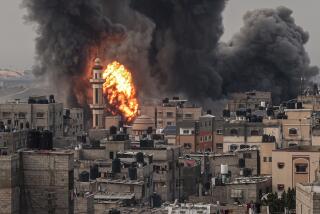Op-Ed: Obama must be clear: War on extremism is a war on violent Islamism

Sometimes a cigar is just a cigar — and sometimes it’s not.
I couldn’t help thinking of Sigmund Freud’s purported quote as I listened to President Obama talk recently about terrorism and as I watched the White House and State Department spokespeople make fools of themselves trying to justify what he’d said.
The president referred to terrorists who “randomly shoot a bunch of folks in a deli in Paris” in an interview with the online magazine Vox. But the establishment attacked by the terrorist in Paris in January wasn’t any old deli, and the folks shot weren’t just “folks.” It was a kosher supermarket that specialized in food bought by Jews. The terrorist who attacked its patrons on a Friday, a day especially crowded as Jews prepared for their Sabbath, killed four of them and told a French TV channel that he was targeting Jews to defend Muslims.
Anyone who knows anything about the attack knows it was aimed at Jews. That the president nevertheless described it as a “random” shooting of a “bunch of folks in a deli” forces one to conclude that he must have been trying to downplay the Islamist identity of the shooter and the Jewish identity of the shooter’s targets.
Even if the president were just being loose with words, there must have been some deeper meaning behind what he said. Why play down the Islamist nature of the terrorism? And why play down the anti-Semitic focus of the acts?
The president and members of his administration have taken pains to talk as little as possible about the Islamist (that is, violent jihadist) sources of the terrorism the world is experiencing. And though they’ve recognized the terrorists’ focus on Jews, they haven’t done so with the clarity and forcefulness expressed by, say, France’s leadership. After the attack on the Jewish market in Paris, French President Francois Hollande called it a “terrifying act of anti-Semitism.” And Prime Minister Manuel Valls said that France was now at “war against terrorism, against jihadism, against radical Islam, against everything that is aimed at breaking fraternity, freedom, solidarity.”
These were powerful statements — something painfully absent from Obama’s nebulous focus on extremism, as if that adequately describes the problem the world is facing.
Could the administration’s attitude and language have something to do with the most important foreign-policy issue it has faced? Could it have to do with the looming deal with Iran on that country’s nuclear program? I think it does. The administration seems poised to accept a deal in which Iran’s capacity to quickly produce a nuclear weapon is limited but not stopped, even as it solidifies its regional hegemony through its accelerating support of such terrorist groups as Hezbollah and Hamas.
A nuclearized Iran is likely to prod an arms race in the region but, most immediately, it threatens the annihilation of Israel, which contains half of all Jews in the world and has been called by many — including, reportedly, one of Iran’s former presidents — a “one-bomb country.” That former president, Ali Akbar Hashemi Rafsanjani, said that “the use of even one nuclear bomb inside Israel will destroy everything.”
A major reason the Obama administration would downplay Islamist terrorism and anti-Semitism would be to enable it to establish what it believes will be “engagement” with a country, Iran, that flagrantly carries out both. But such a desire for engagement may incline the White House to accept a deal that would enable Iran to amass enough fissile material to produce a bomb before an international response could be organized.
Obama is proposing a war on extremism and radicalization. He should be clear. It’s a war against violent Islamism, much of which is supported by a country that could not only give terrorism and anti-Semitism the power to cause incalculable harm but also provoke a nuclear arms race in the most unstable part of the world. And that’s a cigar that, once lit, might well blow up.
Walter Reich is a professor of international affairs, ethics and human behavior at George Washington University, and a former director of the U.S. Holocaust Memorial Museum. He is editor of “Origins of Terrorism: Psychologies, Ideologies, Theologies, States of Mind.”
Follow the Opinion section on Twitter @latimesopinion and Facebook
MORE FROM OPINION:
The right strategy against Islamic State
Islamic State’s horrible healing power in Egypt
Don’t beat up on Obama for avoiding the ‘I word’
More to Read
Start your day right
Sign up for Essential California for news, features and recommendations from the L.A. Times and beyond in your inbox six days a week.
You may occasionally receive promotional content from the Los Angeles Times.






